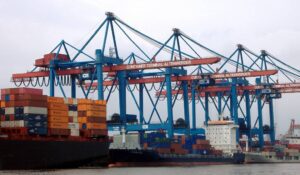
Prices for goods imported into Germany jumped 31.7% in April, a record pace since the 1974 oil crisis, according to the country’s Federal Statistical Office (Destatis).
In particular, the cost of energy imports soared 2.5 times (157.4%) in annual terms, including natural gas increased in price four times, oil – almost 1.8 times (77.5%). Excluding energy carriers, import prices increased by 27.6%.
Among other categories of goods, the most impressive growth was recorded by prices for fertilizers and nitrogen (by 2.9 times), aluminum (by 1.8 times), iron, steel and ferroalloys (by 1.6 times). Imported plastic rose in price by 27.7%, machinery – by 7.9%, cars and auto parts – by 5.7%.
The cost of foreign purchases of food products increased by 20.7%, including coffee – by 68.6%, cereals – by 55.8%.
Compared to March, prices for imported goods increased by 1.8%.
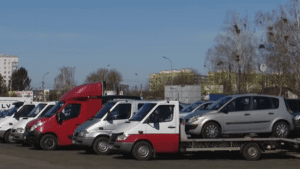
On Monday, the Cabinet of Ministers registered in the Verkhovna Rada draft law No. 7418 amending the Tax Code and other laws on the return of all customs duties and VAT on imported goods, including cars.
According to the draft law registered in Parliament on the revision of certain tax benefits, it is proposed to abolish the customs-free import of cars.
The document also proposes to resume taxation, which was abolished by law No. 2142, for goods imported by single tax payers of the first or third group, since on average the budget loses about UAH 3 billion in import duties on this benefit per month, as well as for enterprises that do not pay import duties – budget losses here average UAH 0.5 billion in import duties.
As for the abolition of preferential auto imports, the government notes that over 119,000 cars were imported during the period of this rule, and budget losses amount to UAH 13 billion, according to the explanatory note to the bill. At the same time, there are not isolated cases of importing premium cars.
At the same time, the bill proposes to exempt those who acquire ownership of electric vehicles from paying the fee for compulsory state insurance.
As noted in the explanatory note, the amount of customs benefits for registered imports of phones amounted to UAH 270 million, clothing and footwear – over UAH 850 million.

601 enterprises have completed relocation from areas where hostilities continue under the state relocation program, 390 of them have already resumed work at new sites in the western regions of Ukraine, the Ministry of Economy reported.
“Another 87 enterprises are at different stages of transportation. Soon another 151 enterprises will move, which are currently on the routes or draw up the necessary documents,” the information on the ministry’s website says.
According to it, the most popular areas for relocation of enterprises are Zakarpattia, Lviv and Chernivtsi. The business also finds new places to locate its facilities in Ternopil, Ivano-Frankivsk, Vinnitsa and other regions.
The movement of equipment is carried out by the facilities of Ukrzaliznytsya, Ukrposhta or by its own resources (with compensation), reminds the Ministry of Economy.
As reported, the program to move Ukrainian production from the zone of active hostilities started in mid-March. According to the head of the parliamentary committee on finance, tax and customs policy of Ukraine, Danila Getmantsev, as of March 27, 1,120 applications were received under the evacuation program, of which 368 were transferred for transportation. By this date, the number of displaced enterprises under the evacuation program has reached 89, of which 47 have already resumed work in a new location.
The Ministry of Economy then updated the data as of April 5: the number of applications for relocation increased to 1424, relocated enterprises – up to 178, resumed work – up to 67.
According to the Ministry of Economy, as of May 12, the number of displaced enterprises increased by 510, a
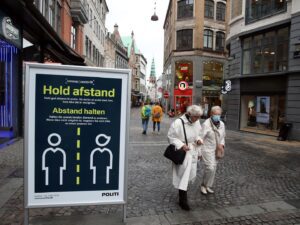
The German Ministry of Health has decided to cancel anti-COVID restrictions for travelers to the country from June 1, the order will be valid until the end of August, the Tagesschau portal reports.
“Due to the decrease in the number of people infected with coronavirus, Germany from June 1 suspends the requirement from travelers for a digital covid certificate upon entry until the end of August,” the newspaper writes.
According to the portal, tourists during this period will not need any documents confirming vaccination, a negative test result or a coronavirus.
At the same time, travelers arriving in Germany from countries with common new strains of COVID 19 will have to undergo a 14-day quarantine even if they are vaccinated or have a certificate of illness.
Meanwhile, the head of the German Ministry of Health, Karl Lauterbach, stressed that so far no country has been identified as a zone with virus variants.
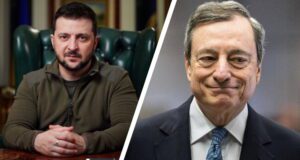
President of Ukraine Volodymyr Zelensky had a telephone conversation with Italian Prime Minister Mario Draghi.
“Informed about the situation on the frontline. We expect further defense support from our partners. Raised the issue of fuel supply. Ways to prevent the food crisis were discussed. We have to unblock Ukraine’s ports together,” Zelensky said on Twitter on Friday.
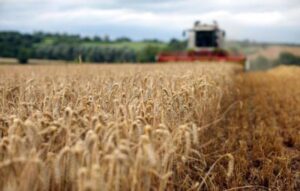
Ukraine in 2022 can harvest a crop of 66 million tons of grain, leguminous and oilseeds, which is 1.6 times less compared to the record harvest over the years of independence in 2021, when 106 million tons were harvested.
As reported on the website of the association Ukrainian Club of Agrarian Business (UCAB) on Thursday evening, this year it is expected to produce 50.4 million tons of grains and legumes (1.7 times less than in 2021), and 16 million tons of oilseeds ( 41.2% less),
According to her, this year the wheat harvest is expected to be 18 million tons (-44% by 2021), corn – 25.7 million tons (-39%), barley – 5.2 million tons (-55%).
As for oilseeds, in 2022 it is expected to produce 10.6 million tons of sunflower (-35% by 2021), soybeans – 3.0 million tons (-14%), rapeseed – 2.7 million tons (-22% ).
According to the UCAB, soybean and rapeseed show the lowest rates of decline in the expected gross harvest. This is due to the relatively small mass of their crop, combined with a high price for it, which facilitates logistical issues when exporting these oilseeds.
The Association emphasized that the decrease in sown area in 2022 was due to the partial occupation of part of the territory of Ukraine by Russian troops, the inability to sow in fields mined by Russians, and also due to damage to the material and technical base of Ukrainian farmers.
In addition, this year, yields are expected to decrease by about 10% due to the inability of some farms to comply with all technological procedures.
“In any case, the grown grains and oilseeds will be enough to meet the domestic needs of Ukrainians, as well as partial export sales. The main thing is that exports recover to their previous volumes, and farmers have sufficient financial resources to carry out the next sowing season,” summed up the UCAB in forecast
As reported, in 2021 Ukraine harvested a record harvest of grains, legumes and oilseeds in the amount of 106 million tons: grains and legumes – UAH 84 million and oilseeds – 22.6 million tons.
In 2020, the harvest of grains, legumes and oilseeds amounted to 84 million tons, including grains and legumes – 65.5 million tons, oilseeds – 18.5 million tons.